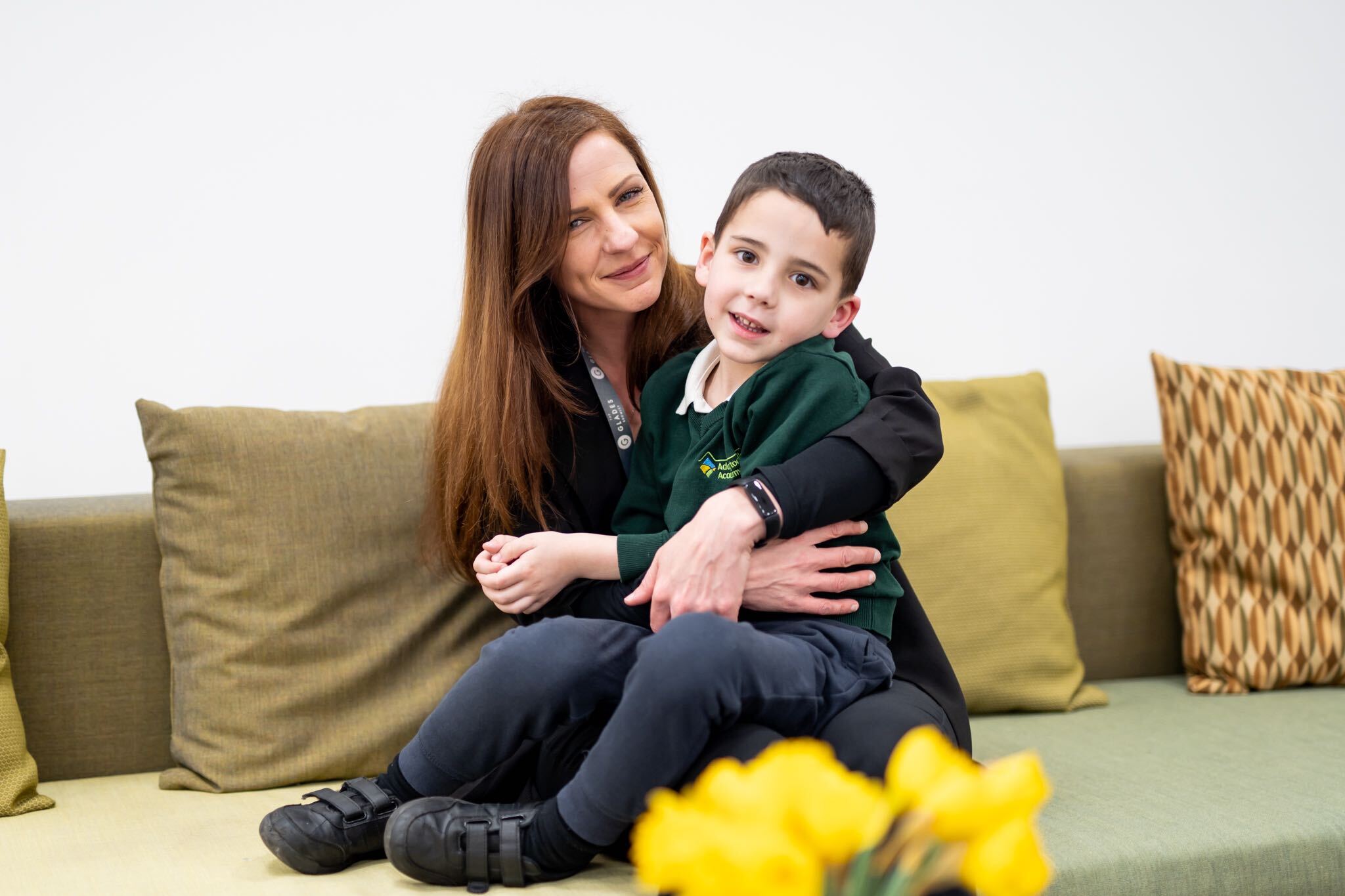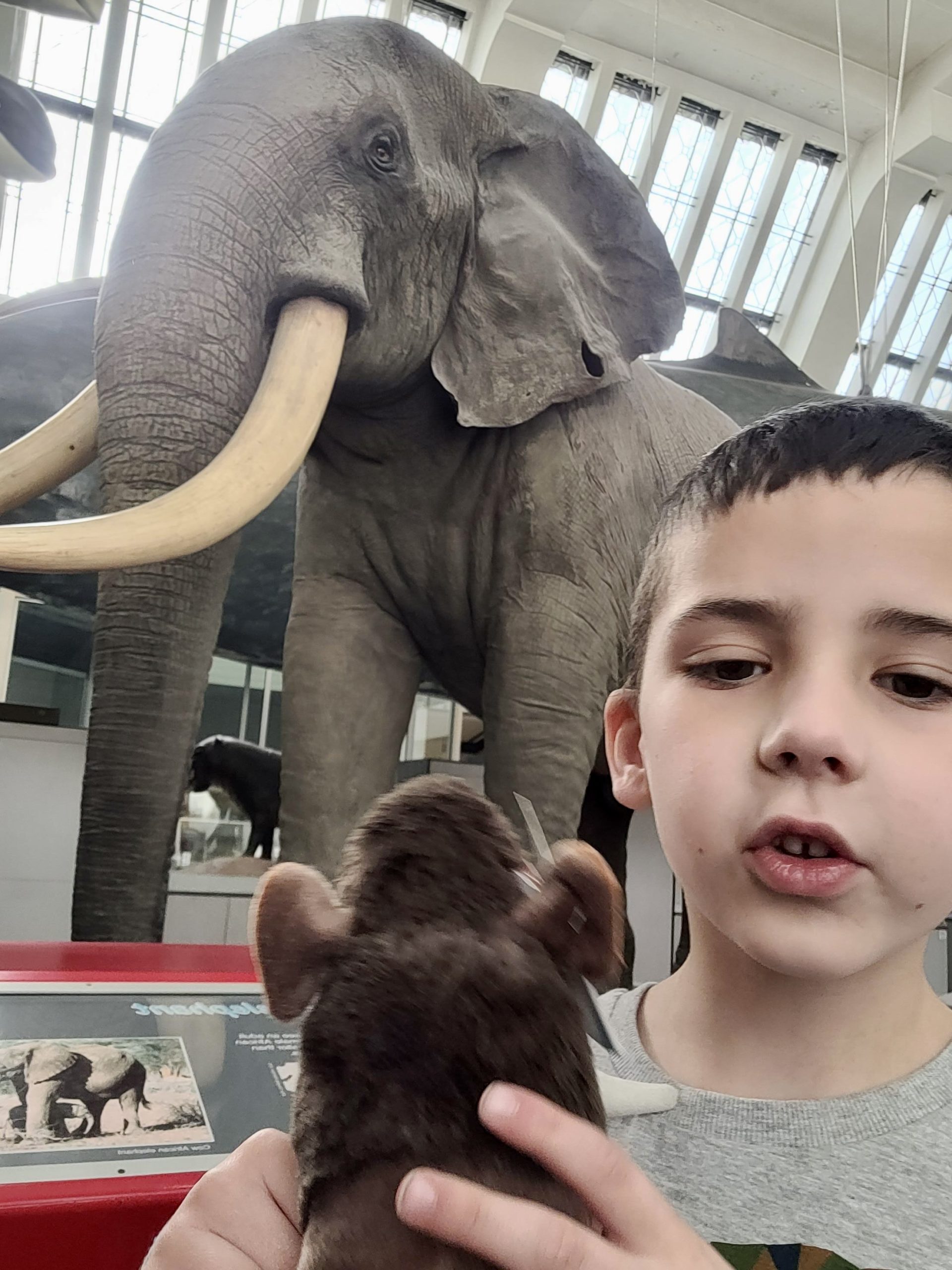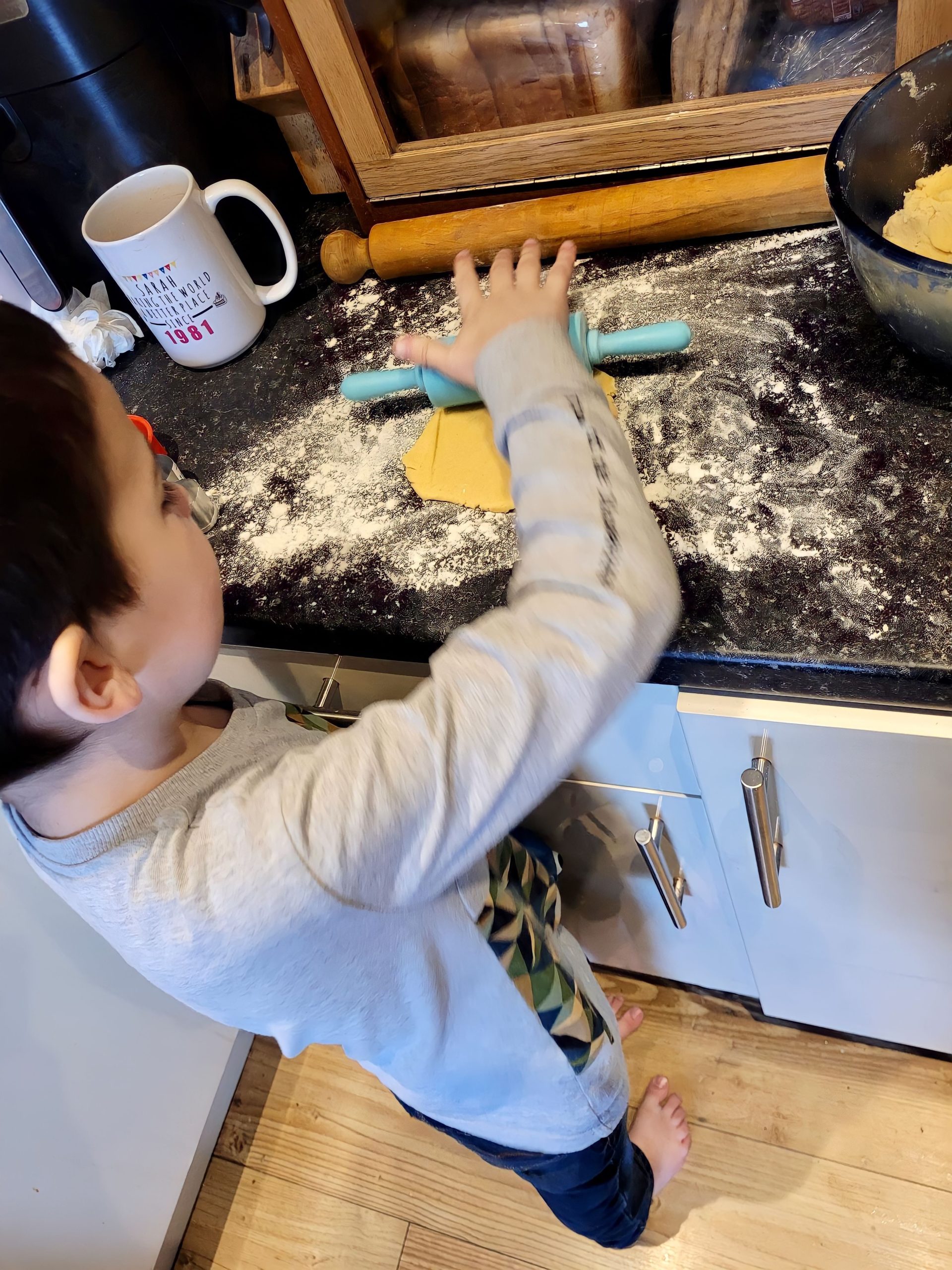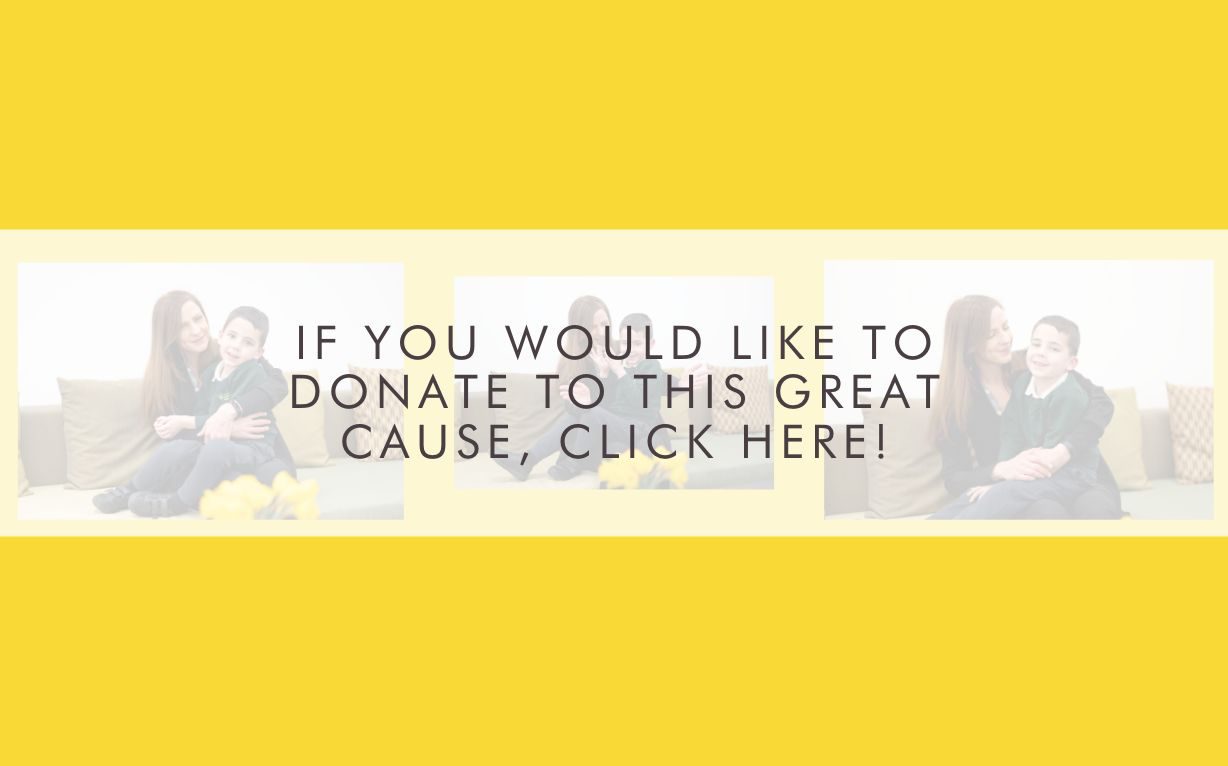
April marks Autism Awareness Month. To mark the occasion, we spoke to Sarah Goldsmith, Operations Manager at The Glades and mum to Harry who was diagnosed with Autism in 2020.
Words by Imogen Smith
In case you didn’t already know, Autism, or Autism Spectrum Disorder (ASD), is a complex neurological condition that affects a person’s social interaction, communication, and behaviour. It’s known as a spectrum disorder, which means the symptoms and severity of ASD vary widely from person to person.
In this conversation with Sarah, she highlights the importance of raising awareness around autism as a way to help people understand the condition, while highlighting the need for better support and resources for individuals and families who live with ASD.
Can you tell us a little bit about Harry?
Harry is six years old and he was diagnosed with autism in September 2020. He goes to a brand new school that specialises in autism and since joining, the teachers and staff have helped him with his communication and his speech so he now talks a little more. In the last eight months, he’s started saying, mummy and daddy and actually meaning it and understanding who we are! But, when Harry finds it’s a little bit too tricky to say what he wants, he uses a PECS communication book.

He’s a very happy little boy and he loves playing; particularly with dinosaurs and animals. He likes elephants, lions, giraffes, gorillas and he has memorised the book We’re Going On A Bear Hunt, cover to cover. He also really enjoys singing, or trying to!
One way we help him at home is to create daily schedules showing him exactly what his day looks like so he doesn’t get scared about what he needs to do; as long as he knows what’s happening, he is ok. An example of this is, he really doesn’t like having his hair or nails cut. However, we had a breakthrough a couple of days ago and his schedule really helped because it showed him we were going to cut his nails so he knew it was coming.
Ultimately, Harry is our pride and joy, he is our ray of sunshine. He rarely has a meltdown but when he does become upset or agitated it is normally due to sensory problems around crowds or noises most of the time or can be frustration.
How is autism diagnosed?
It’s quite a long process. We started talking to doctors because we saw certain delays in his speech and how he could be quite repetitive when he was playing. After seeing a doctor, we were then referred to a paediatrician and we also went to see a speech and language therapist, because we thought Harry’s speech delays could be something normal. However, we couldn’t get a referral for speech and language without going through something called Chatterbox, which is a group for younger children with speech delays and it encourages speech through play. I’d been to these groups before when Harry was a lot smaller but I went back and luckily, a speech and language therapist recognised him from our first visit and heard he still hadn’t made any improvement. From there, we eventually had a referral to speech and language.
We started the process towards the end of 2019 but then we went into lockdown so the whole process was delayed and then he was on a very long waiting list. I think we were about number 300 in a queue, waiting for a meeting that would give Harry a formal diagnosis.
Eventually, once the paediatrician had gone through all Harry’s assessments and medical reports, he confirmed that yes, he was autistic. But once you’re given the diagnosis letter you are provided with leaflets and you’re just sent home without much support or guidance.
How did you feel once Harry was diagnosed?
Initially we felt at a bit of a loss. You have lots of mixed emotions. We had read up on what Harry’s behaviour could mean and thought it might be autism but even then, we kept thinking we might be wrong, but hearing the paediatrician confirm our thoughts was very emotional. Mainly because we don’t know what it’s going to mean for Harry long term and what sort of life he’s going to have. We had and still ask so many questions – how do we make sure he’s developing as much as he can to have social emotional skills? Is he ever going to find a way to use words because some autistic people don’t ever develop speech? What is his adult life going to be like? How is he going to make friends? How’s he going to interact with people? How is he going to grow?
So you sort of hope after a diagnosis you’re going to get some help. But you don’t and instead, it’s up to you to find it. Which is partly why we’re doing the Walk for Autism, to help raise awareness and support.
How did you first get involved with Walk for Autism?
I saw it advertised on Facebook. I’d seen it but the sign up to register had closed but it planted the idea in my mind to do something and when it came back up again last year, Harry and I signed up and we made it a fun thing we did together.
He would do some steps at school and then we did more after school every day. We’d go to the park or go out on his scooter or go out and throw a ball. He loved it and so we’re doing it again this year and we’re going to up our steps to do 20,000 a day between us.

How does the money you raise go to improve awareness and acceptance for autism?
The money is put towards a lot of little fun projects organised by Autism Initiatives Group. So lots of their projects are more focused in the North rather than the South but they’ve funded various things like funding an Occupational Therapist for a centre where this type of support was needed, which was a huge thing for them. It also funds equipment; things like bikes that are suitable for the children or teenagers and adults who go to social centres, as well as projects and social activities, which is really key as often people with autism find it difficult to build relationships and tolerate other people close to them.
It took Harry probably until last year to be able to play with somebody. But his school now has helped and encouraged him to play with other people, including adults. He will sit next to the other children while he’s eating his lunch and he will let them come into his space. Not all the time. But the money from our fundraising does help with building those social skills.
Autism is a hidden disability. After looking for ways to support Harry and help others understand he may need a little more time or help on occasions I came across the Sunflower Lanyard scheme. At first, I saw this for travelling support letting airlines know you might need help. Then it has helped for days out when you go to busier or crowded events.
After reading more into it I put together a proposal for The Glades to adopt the Sunflower Lanyard scheme, we have now been part of this since late 2020 giving out nearly 1000 lanyards in the first year and then including bracelets following feedback from our customers that they would like an alternative to a lanyard. We still offer these today.
What have been some of the most valuable resources or tools that you’ve relied on for support during yours and Harry’s journey with autism?
One of the key resources right at the beginning of Harry’s diagnoses was the sensory processing course, from the Autistic Society. Doing the course was the biggest eye opener and I’ll always remember what it taught me about the six second rule. Basically, when you’re trying to ask your child to do something, like “put your shoes on”, if you count to six between you delivering the message and them actually being able to do it, it allows the child time to notice and process what you’ve asked them to do. This really helped Harry to understand what he was being asked.
Having the PECS communication and learning how to use it at home was a big thing too, as well as the Makaton courses, which were really important for teaching Harry some basic communication skills using signs.
It’s worth saying autistic children are not naughty. There are many reasons why a child may shout, scream, throw themselves to the floor, hit out, bite, run around in circles and none of these things mean they’re naughty. It means they have a sensory difficulty they’re trying to deal with and don’t know how to. Equally, it’s worth considering the child’s parent or guardian is also doing what they know will help their child and they don’t need judging looks.
Do you have any plans for any other fundraising work this year? What will those involve?
I haven’t got anything as yet but with the help of the Autism Society, I’d like to do something that will give support in more local areas as well. I want to be able to find the groups, clubs and classes that will help people with autism, because if you try and find anything social, for a child with autism, it’s nearly impossible. For example, I was trying to find a quiet session for Santa or a pantomime that I could take Harry to over Christmas but they’re all run during school hours so it’s not inclusive. I would really like to look at ways of supporting more social projects because at the moment, there just isn’t the funding and it’s important these interactive opportunities are available, particularly for young children with autism.

